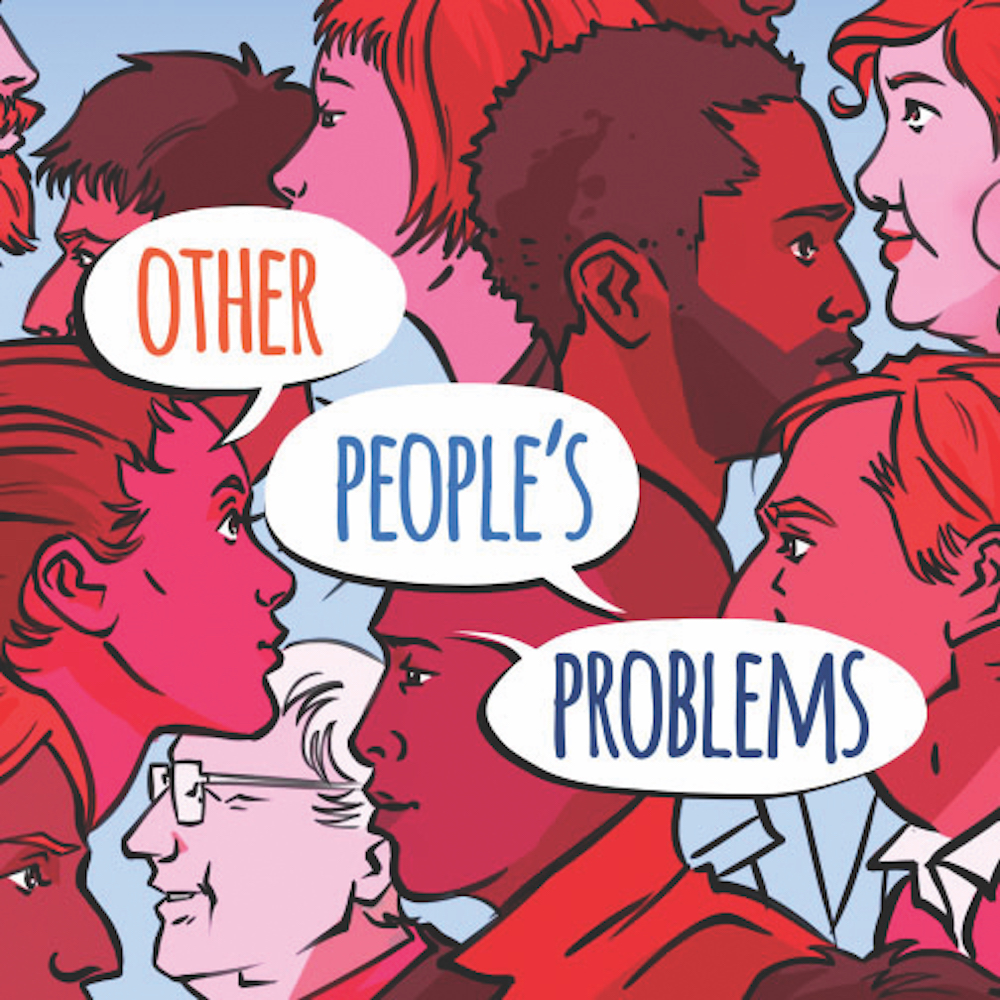Other People’s Problems is a candid podcast that delves into the therapy sessions of consenting patients hosted by Vancouver-based psychologist, Hillary McBride. Although fans of the self-help genre or the field of psychology will be immediately drawn to the concept, the show has aspects that attract a wider audience, too. The stories revealed are recorded in Vancouver, which can hit close to home. It’s easy to identify with the patients — they’re people you could even be sitting next to in traffic. Furthermore, the issues that arise are ones that most people can relate to. Sessions range from focusing on the experiences of trauma to coping with heartbreak, depression, anxiety, fear of change, and everything in between. To paraphrase McBride, you learn that other people’s problems are not so unlike your own.
Each episode begins en medias res with the patients already having begun to discuss new occurrences in their lives; there’s the sense of an ongoing narrative and trust from previous appointments. The flow of the podcast is heavily influenced by McBride’s active, compassionate style of therapy. The sessions aren’t completely unedited either. At times McBride will chime in post-production to explain her thought process to listeners or explain why she chose to ask specific questions. This gives her a more involved role in the podcast and serves to break up long monologues with a therapist’s insight.
In a cultural landscape of social media where we’re surrounded by influencers who only highlight their best moments, it’s refreshing to listen to a podcast that assures us that it’s okay not to have it together all the time. However, what I appreciate the most from Other People’s Problems is that patients consent to being recorded as a way to attest to the power that therapy has had in their lives and in the hopes of encouraging others to get help. Unscripted media will often exploit intimate moments of vulnerability for views or a narrative, like in the case of reality TV. While participants in reality TV shows don’t always directly consent to having sensitive subject material brought up and amplified, I get the impression that McBride’s patients have a better idea of (and more control over) what they’ll be projecting to the world through their participation in the podcast. Although this podcast leaves listeners with the genuine sense that it’s attempting to serve a higher purpose, it’s also worth noting that McBride does benefit from the show and having us engage with other’s pain in a voyeuristic way.
What might be most surprising is that it’s cathartic hearing others emotionally purge themselves. Although it may seem like this podcast would cause listeners to take on “other people’s problems,” it can actually have the opposite effect, if you’ll let it. There’s a safety within the space created by the podcast to express oneself, digest ugly feelings, then consciously release them. In this way, Other People’s Problems gives the unique experience of having you strongly empathize with the patients, often tensing up when you hear their frustration or hurt, only to immediately release the pent up stress when McBride’s smooth voice coaches them through breathing exercises. Each patient’s issues seem overwhelming and all-consuming, just like how listeners feel about their own stressors. By taking the passive role of an onlooker, you gain an outsider’s viewpoint. It encourages, at least myself, to take a deep breath, distance myself from my ego, and try to see my own issues from another perspective. The execution of this podcast is clean and respectful of the patients, and I recommend it. Each episode of Other People’s Problems is a ride, but if you’re willing to trust in the process, surrender yourself, and release stress, it has the power to help you solve your own.
Chandy is a biology major/chemistry minor who's been a staff writer, Arts editor, and Managing Editor at The Cascade. She began writing in elementary school when she produced Tamagotchi fanfiction to show her peers at school -- she now lives in fear that this may have been her creative peak.


